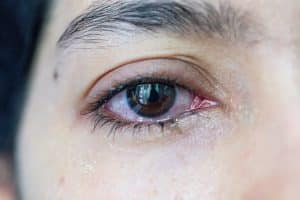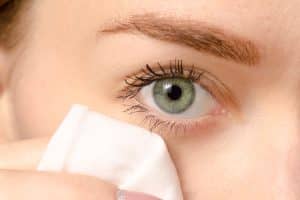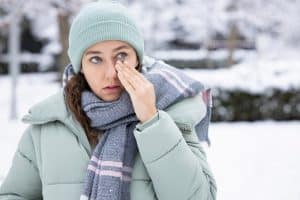Deteriorating eyesight is a natural part of the ageing process, but that doesn’t mean you can’t do anything to slow it down. In the same way you can exercise and eat a healthy diet to help keep your body in good shape, there are things you can do to maintain your eyesight and eye health.
Five ways to promote healthy eyes as you get older
There are lots of techniques you can try to help your eyes stay fresh and healthy as you age. You could be here forever reading about them! Instead, we’ve outlined our top five favourite ways you can look after your eyes without impacting your day-to-day life greatly. In fact, you should be able to fit these tips and tricks into your regular routine easily and start reaping the rewards.
So, let’s begin.
Have regular eye tests
It’s advice you’ve heard time and time again, but that’s because it’s important. Looking after your eyes at home is one thing, but if you’re not monitoring your eyesight, there’s a chance you’ll develop an eye condition and not notice until it’s too late to do anything about it. Opticians can spot the early warning signs of eye problems and advise you on treatment options that can stop or slow the condition.
On top of that, having regular eye tests means you have the opportunity to update your prescription. This reduces the chances of you trying to see with glasses that are no longer the right strength for you, which in turn can reduce eye strain, headaches and of course improve your quality of vision. It’s advised that you should have an eye test at least once every two years, but if you’re experiencing any problems with your eyes, you should book an appointment sooner.[1]
Relieve signs of dry eye
If you suffer from dry eye, you may experience more flare ups of the condition as you get older.[2] This could mean that the side effects you once shrugged off, you can no longer ignore. While there’s not much you can do to prevent ageing, you can tackle the irritation of dry or tired eyes as it appears. For instance, TheraTears® Dry or Tired 50+ Eye Drops are specifically designed for mature eyes, with cross-linked hyaluronic acid to refresh and rejuvenate the tear film. Used when your dry eye flares up, these eye drops can help you to manage the condition.
Protect your eyes from the sun
We’ve all heard about the benefits of using sunscreen to protect our skin from UV rays, but did you know it’s important to protect your eyes too? Sunglasses aren’t just a fashion accessory – they actually block some of those harmful UV rays from reaching your eyes. As well as making it easier to see in bright, sunny conditions, sunglasses can help to defend your eyes to keep them healthy. Pair your sunnies with a wide-brimmed hat to keep as much sun off your eyes as possible and preserve your eyesight for longer.[3]
Avoid smoking
Smoking is widely-known to be damaging to your lungs, but evidence suggests that it can also affect your eyesight. Having a smoking habit can increase your risk of developing a number of eye diseases that can lead to blindness or vision loss. These include cataracts and age-related macular degeneration. Smoking can also exacerbate other conditions such as dry eye.
So, if you currently smoke, cutting down or quitting altogether is a good way to help protect your eyes as you get older. Plus, there are dozens of other health-related benefits to quitting smoking. It’s also a good idea to try and avoid second-hand smoke where possible, as this can have a similar, though usually lesser, impact.[4]
Reduce your screen time
Finally, another way to look after your eyes is to reduce your screen time. The bright blue light of screens – such as TVs, computers or mobile phones – strain our eyes and make them work harder to see clearly. When we use screens for prolonged periods at a time, we deprive our eyes of the chance to refocus and refresh themselves. This can be a key trigger for dry eye and eye strain, but reducing screen time can reduce the effects.
If you have to use screens a lot for work, studies or other commitments, then make an effort to have breaks where you spend time away from the screen. Look at things that are far away to give your eyes a chance to readjust and explore hobbies that take you away from the screen for longer periods of time.
Another effect of screen time is that it can disrupt your sleep, especially if you use screens too close to bedtime. It’s believed that this is because the blue light of screens mimics daylight, making our brains think it’s time to be up and about doing things. Unfortunately, a bad night’s sleep can exacerbate other conditions across your overall health, making you feel worse the next day.
Having a restful evening routine can help you to get to sleep quicker, especially if you stop using screens a good amount of time before bed. Turning off screens earlier in the evening allows your body to adjust to the natural light levels, letting it know it’s time to rest.[5]
Resources:
[1] https://www.aao.org/eye-health/tips-prevention/20-ways-aging-changes-your-eyes
[2] https://www.nhs.uk/conditions/dry-eyes/
[3] https://www.nia.nih.gov/health/vision-and-vision-loss/aging-and-your-eyes
[4] https://www.nia.nih.gov/health/smoking/quitting-smoking-older-adults







